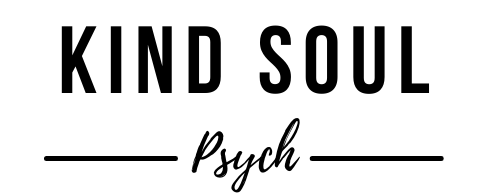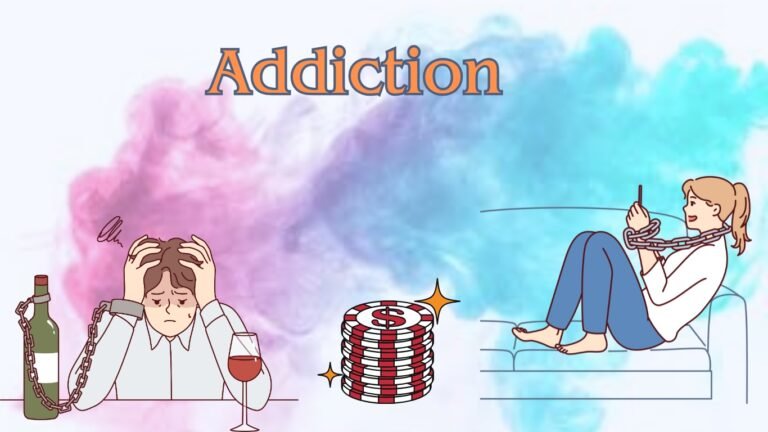
About Addiction: Causes, Symptoms & Treatment Guide For 2025
Introduction:
Addiction is a chronic mental health condition, characterised by either compulsive behaviours (behavioural addiction) or substance use (substance addiction), despite harmful consequences for the addict and/or those around them (Fluyau et al., 2024). It affects millions of people worldwide, disrupting lives, relationships, and overall wellbeing, thereby reducing the quality of life of individuals affected by it (Volkow, 2020).
Understanding its signs, causes, types, and the various treatment options that are available is thus crucial for effective recovery.
This comprehensive guide aims to explore:
- What is addiction?
- Common symptoms and warning signs
- Types of addiction: Substance and behavioral
- Root causes of addiction
- Stages of addiction
- Treatment options and recovery strategies
This article is for educational and informational purposes only. Please see full disclaimer below.
What is Addiction?
Addiction is a chronic mental health condition which results in physical, psychological, and emotional dependence on substances and/or behaviors. It often involves:
- Loss of control, (National Institute on Drug Abuse, 2020) where individuals struggle to stop even when aware of the consequences.
- Compulsivity, (Fluyau et al., 2024) leading to repetitive actions or substance use.
There are several forms of addiction. Classically, substance addiction involves dependency on drugs, alcohol, nicotine, or prescription medications that alter brain chemistry, and is one of the most well-known forms; for example, alcoholism results in uncontrolled drinking (Volkow, 2020) and drug addiction often leads to dependence on opioids, stimulants, or other recreational drugs. In addition, nicotine dependence involves the regular use of (and habituation to) cigarettes, vaping, or other tobacco/nicotine products (Fluyau et al., 2024).
On the other hand, behavioral addiction refers to compulsively engaging in rewarding activities despite negative impacts on one’s quality of life and/or wellbeing. This category includes gambling addiction, internet/videogame addiction, pornography addiction, and other behaviors such as overspending or compulsive eating (American Psychiatric Association, 2013; Petry, 2016).
Furthermore, substance and behavioral addictions can occur together, resulting in co-occurring addictions that complicate recovery.
Co-Occurring Addictions:
Substance and behavioural addictions are not mutually exclusive – when individuals struggle with both behavioural and substance addictions at the same time, these are termed as co-occurring conditions in the life of the addict.
For example, a person addicted to alcohol may concurrently develop a gambling addiction as the result of risky behaviour associated with drinking. Likewise, an individual addicted to stimulants (e.g. cocaine, methamphetamine) may develop a sex addiction due to the effect of these stimulants on libido and reward pathways within the human brain. In both cases, the addict has developed a co-occurring addiction. On this note, Petry and colleagues (2005) note in their research a strong correlation between gambling addiction and substance use disorders.
Polysubstance Addictions:
Similarly, an individual can be addicted to more than one substance at the same time; this is termed as polysubstance addiction or polydrug misuse, for example the combination of alcohol with other addictive depressant drugs, such as benzodiazepines, Z-drugs or opioids) by some addicts.
All types of addiction, whether behavioural, chemical (substance misuse) or a combination of either (co-occurring), can interfere with the addict’s daily life, relationships, and responsibilities.
Signs and Symptoms of Addiction:
Early recognition of addiction and acknowledgement that a problem exists is vital for recovery. Common indicators include:
- Intense cravings for taking addictive substances or engaging in activities/behaviours (e.g. gambling, pornography, overspending) one is addicted to (National Institute on Drug Abuse, 2020)
- Loss of control (SAMHSA, 2020) over frequency or quantity of substance use/engagement in a given behaviour.
- Neglecting responsibilities (SAMHSA, 2020) at home, work, or school due to the effects of the behaviour/drug or abstinence/withdrawal therefrom.
- Continuing drug use or engagement in a given behaviour, despite negative consequences (e.g., poor health, relationship issues resultant from the addiction’s behavioural consequences, etc.; National Institute on Drug Abuse, 2020).
- Withdrawal symptoms when trying to stop the drug, or stop engaging in a given addictive behaviour which generally manifest with increasing drug tolerance (requiring more of the addictive drug, or behaviour to achieve the same effect (shift in mood) which previously required a smaller amount of engagement in, or dosage, of the behaviour/drug; National Institute on Drug Abuse, 2020, StatPearls, 2024)
- Secrecy and dishonesty about engagement in an addictive behaviour and/or drug usage (National Institute on Drug Abuse, 2020)
- Social isolation and damaged relationships; sometimes, individuals experiencing addiction may isolate themselves from others to conceal their addiction(s) (e.g. hiding drug usage, and/or engagement in addictive behaviours) (SAMHSA, 2020)
Seeking professional help, thus, is crucial if you, or someone you know, exhibits these warning signs of addiction.
What Causes Addiction?
Addiction arises from a combination of biological, psychological, behavioural and social factors.
Biological factors include genetic predisposition, in that a family history of addiction increases susceptibility to addiction in certain individuals (StatPearls, 2024), suggesting a certain degree of genetic predisposition in developing addiction to a given substance (or behaviour) upon engaging in this behaviour/consuming the substance, in addition to brain chemistry.
Addictive substances and behaviours alter (increase) brain dopamine levels in the nucleus accumbens (pleasure centre) of the brain, facilitating the development of a drug dependency (National Institute on Drug Abuse, 2020).
Psychological factors for the development of addiction include mental health disorders; anxiety, depression, and trauma often co-occur with addiction.
As such, a potential coping mechanism in response to these psychological factors could be turning to addictive substances and/or behaviors to escape emotional distress or pain (SAMHSA, 2020)
Environmental influences for the development of addictions include peer pressure, or normalisation of exposure to substance use or addictive activities (National Institute on Drug Abuse, 2020). These can increase the risk of developing a behavioural or substance addiction, by normalising the impact of the behaviour, or drug, in contrast to its adverse effects. In addition, stress and trauma (caused, or worsened by, difficult life circumstances, or lack of support systems) can increase the risk of individuals turning to addictive behaviours or substances to cope with trauma and stress.
Following on from this, behavioural patterns such as poor emotional regulation or impulse control can lead to addictive behaviours (StatPearls, 2024); for example, consuming a drug of abuse on a whim if it is easily available in the addict’s surroundings (i.e., the prevalence of cannabis dealing in urban neighbourhoods, which some consume as a way to “de-stress”.)
Stages of Addiction
Understanding addiction progression helps identify early intervention opportunities. The stages of addiction are generally as follows (StatPearls, 2024):
- Experimentation – Initial use (or engagement in an addictive behaviour), driven by curiosity and/or peer pressure.
- Regular Use – Increased frequency of engagement in an addictive behaviour/consumption of addictive substances to cope with stresses in life.
- Dependency – Loss of control; needing to consume addictive substances or engage in addictive behaviors to function.
- Addiction – Severe dependence, with withdrawal symptoms and health deterioration.
Addiction Treatment Options:
Effective addiction treatment combines detox, therapy, and long-term strategies for relapse prevention (NIDA, 2020). Detox programs facilitate supervised withdrawal from substances (and/or cessation of engagement in addictive behaviours) to manage physical and psychological symptoms of addiction(s) safely.
Therapy for Addiction:
Effective addiction treatment combines detox, therapy, and long-term strategies for relapse prevention (NIDA, 2020). Detox programs facilitate supervised withdrawal from substances (and/or cessation of engagement in addictive behaviours) to manage physical and psychological symptoms of addiction(s) safely.
Therapy and counselling include cognitive behavioral therapy (CBT; SAMHSA, 2020) which focuses on helping the individual to understand and recognise patterns of harmful thoughts and behaviours, thus facilitating a safe space for clients to explore their thoughts, challenge self-limiting (or in this case, harmful) thoughts and beliefs, and thereby develop more positive, balanced ways of thinking, in addition to motivational interviewing (MI) and family therapy.
MI is a goal-oriented therapy (NIDA, 2020) designed to support an individual’s motivation and strengthen their commitment to change and facilitates clients to resolve ambivalence about quitting addictive behaviours via focusing on their personal values and desires for a better future.
Family therapy, as a therapeutic modality (DSM-5-TR; American Psychiatric Association, 2013), addresses the impact of addiction on family dynamics and helps repair strained relationships; addiction often affects not just the individual but also loved ones, creating emotional distance and conflict.
Support groups, including programs such as Alcoholics Anonymous (AA) and Narcotics Anonymous (NA) can help provide accountability and peer support.
Rehab programs:
Rehab, or rehabilitation, programs, encompass both inpatient and outpatient options, depending on the severity of the addiction and required support.
Inpatient treatment provides a structured, immersive care environment where individuals live at a rehabilitation facility for a specific duration, often ranging from 30 to 90 days or longer.
Conversely, outpatient programs allow individuals to continue living at home while attending scheduled, yet flexible therapy sessions and receiving professional support. Generally, outpatient programs are suitable for those with milder addictions or strong support systems, offering flexibility for people who need to balance work, school, or family commitments during recovery.
Medications for Addiction Recovery:
Medication-assisted treatment (MAT) for addiction recovery can be defined as the use of appropriate medications which block the pleasurable effect of the drug of abuse, substitute for the drug of abuse psychopharmacologically (to alleviate symptoms of drug withdrawal and allay the compulsion to purchase the illegal drug) and/or induce physically, or psychologically, unpleasant adverse effects when the medication is consumed alongside the drug of abuse.
- Disulfiram (Antabuse) is used as an an aversive therapy for the treatment of alcoholism (Wright and Moore, 1990) and is an FDA-approved treatment for the prevention of relapse in alcoholism (Stokes et al., 2023). Disulfiram works by inhibiting the enzyme aldehyde dehydrogenase (ibid. 2023) which blocks the breakdown of acetaldehyde into ethanoic acid.
This causes a buildup of serum acetaldehyde in alcoholic patients medicated with disulfiram, termed the disulfiram-alcohol interaction; its characteristic symptoms are palpitations, nausea, facial flushing, vertigo and hypotension, which deter alcoholics from drinking more alcohol by means of aversion.
- Naltrexone is an opioid antagonist which binds to mu-opioid receptors, blocking the rewarding and/or intoxicating effects of opioids (drugs that bind to and agonise the mu-opioid receptor; Singh and Saadabadi, 2022), alcohol (Anton, 2008) and other drugs which release endorphins (e.g. nicotine; Berrendero et al., 2010) via inhibiting the action of endorphins and opioids in the nucleus accumbens (pleasure centre) of the brain, thereby blocking the pleasurable sensations experienced upon drug use.
- Naltrexone can also be used off-label to treat behavioural addictions, suggesting a role of endorphins (natural opioid-like chemicals produced by the human body to mediate happiness and analgesia) and naltrexone’s inhibition of the activity of these endorphins in its therapeutic effect against behavioural addictions (Aboujaoude and Salame, 2016)
- Buprenorphine can be used in the treatment of opioid addiction, as it is a long-acting partial agonist of opioid receptors (Lutfy and Cowan, 2004) which blocks binding of other opioids (e.g. morphine, oxycodone) to the receptors in the nucleus accumbens (Isaacs et al., 2020), thereby managing cravings and preventing relapse by blocking the euphoric effect of the opioid(s) abused.
- Methadone is a long-acting, synthetic opioid (Durrani and Bansal, 2024) used in the treatment of opioid addiction, which provides long-acting relief from opioid cravings and withdrawal, thereby decreasing the likelihood of opioid abuse by the addict and supporting treatment adherence.
The Road to Addiction Recovery
It’s time to seek professional help if you, or a loved one, is currently experiencing:
- Loss of control over substance use or behaviours.
- Negative impacts on health, work, or relationships.
- Withdrawal symptoms when attempting to quit.
Early intervention through addiction counselling and treatment programs improves recovery outcomes significantly.
Sustaining recovery requires continuous effort and coping mechanisms:
- Identify Triggers: Avoid engaging with situations, objects, or people linked to addiction, or addictive behaviours.
- Adopt Healthy Habits: Exercise, meditation, and hobbies reduce stress.
- Build Support Networks: Lean on trusted family, friends, or support groups.
- Set Realistic Goals: Focus on incremental progress and celebrate milestones.
- Stay Committed to Therapy: Regular counselling reinforces skills to prevent relapse.
Addiction may be a complex disorder, however it is treatable. Recovery begins with recognising the signs of addiction, whether behavioural, chemical or co-occurring, and seeking appropriate help. Whether through therapy, detox, or support groups, the journey to sobriety is achievable.
If you or someone you love is battling addiction, don’t wait to get help.
Conclusion:
Addiction is a multifaceted, chronic and complex psychological disorder, which wreaks havoc on lives via its intersection of compulsive behaviors and substance use with deep biopsychosocial consequences.
Volkow (2020) and Fluyau et al. (2024) note that addictive behaviors arising from both substance use and non-substance-related activities (behaviours) leverage the same neurobiological pathways, especially those associated with the brain’s dopamine reward system.
Treatment strategies include, but are not limited to, medically supervised detoxification, cognitive behavioral therapy, motivational interviewing, medication-assisted treatment and supportive networks.
Immediate recognition and treatment is essential as it can help, not only to prevent further deterioration, but also to help individuals affected to regain control over their lives.
Continued research and refinement of diagnostic criteria will be essential in advancing the future understanding and treatment of addiction.
FAQ:
Q1: What is addiction?
A1: Addiction is a chronic disease, characterised by compulsive use of a substance or engagement in behaviour despite harmful consequences. Addiction involves alteration of the brain reward circuitry, in particular control of compulsion and/or cravings for the substance used (e.g. ethanol, opioids, cocaine) (Volkow, 2020; Fluyau et al., 2024).
Q2: How do I know if someone is addicted?
A2: The main symptoms of any addiction include strong cravings, losing control of use, withdrawal symptoms when abstaining from the drug, or behaviour, tolerance (needing more of the drug/behaviour to get the same effect), secrecy about drug use/engagement in addictive behaviours and/or impairments in personal/professional life, including socially, occupationally and educationally.
These markers indicate that the addictive behavior, or substance misuse, is impacting life (National Institute on Drug Abuse, 2020; SAMHSA, 2020).
Q3: What causes someone to become addicted?
A3: Addiction is a complex disease, driven by a combination of genetic vulnerability, neurobiological changes, co-occurring psychopathology, and the environment, including social influences such as peer pressure and trauma.
Such a complex interaction can increase the vulnerability of individuals in certain populations to experience addiction compared to others (StatPearls, 2024; SAMHSA, 2020).
Q4: What are the options available for treating addiction?
A4: Treatment can include drug detoxification to reduce withdrawal symptoms, alongside psychotherapy modalities such as Cognitive Behavioral Therapy and Motivational Interviewing, medication-assisted therapies (such as naltrexone, buprenorphine or methadone for opioid use disorder) and participation in support groups. These approaches are often most effective when combined together (Petry, 2016; Volkow, 2020).
Q5: Why is early intervention so critical to kick-start the addiction recovery journey?
A5: The earlier the intervention, the better the outcome; this is because generally, addictions can worsen over time without external intervention. Thus, addiction causes significant damage to health, relationships and life functioning; its identification at an early stage thereby allows for the treatment of the problem with a higher chance of success in maintaining recovery over time and preventing relapse (National Institute on Drug Abuse, 2020; SAMHSA, 2020).
References:
- Aboujaoude, E. and Salame, W.O. (2016) ‘Naltrexone: A Pan-Addiction Treatment?’, CNS Drugs, 30(8), pp. 719–733. Available at: Naltrexone: A Pan-Addiction Treatment?. (Accessed 20 February 2025)
- American Psychiatric Association. Diagnostic and Statistical Manual of Mental Disorders: DSM-5-TR. 5th ed. Washington, DC: American Psychiatric Publishing; 2013.
- Anton, R.F. (2008) ‘Naltrexone for the Management of Alcohol Dependence’, New England Journal of Medicine, 359(7), pp. 715–721. Available at: Naltrexone for the Management of Alcohol Dependence. (Accessed 20 February 2025)
- Berrendero, F. et al. (2010) ‘Neurobiological mechanisms involved in nicotine dependence and reward: Participation of the endogenous opioid system’, Neuroscience & Biobehavioral Reviews, 35(2), pp. 220–231. Available at: Neurobiological mechanisms involved in nicotine dependence and reward: Participation of the endogenous opioid system. (Accessed: 20th February 2025)
- Durrani, M. and Bansal, K. (2023) Methadone, PubMed. Treasure Island (FL): StatPearls Publishing. Available at: Methadone (StatPearls). (Accessed 20th February 2025)
- Fluyau D, Hashmi MF, Charlton TE. Drug Addiction. In: StatPearls [Internet]. Treasure Island (FL): StatPearls Publishing; 2024. Available at: Addiction (StatPearls) (Accessed: 20 February 2025).
- Isaacs, D.P. et al. (2020) ‘Buprenorphine is a weak dopamine releaser relative to heroin, but its pretreatment attenuates heroin‐evoked dopamine release in rats’, Neuropsychopharmacology Reports, 40(4), pp. 355–364. Available at: Buprenorphine is a weak dopamine releaser relative to heroin, but its pretreatment attenuates heroin‐evoked dopamine release in rats. (Accessed: 20th February 2025)
- Lutfy, K. and Cowan, A. (2004) ‘Buprenorphine: a unique drug with complex pharmacology’, Current Neuropharmacology, 2(4), pp. 395–402. Available at: Buprenorphine: a unique drug with complex pharmacology. (Accessed 21st February 2025)
- Petry, NM. Behavioral Addictions: DSM-5 and Beyond. New York: Oxford University Press; 2016.
- Singh, D. and Saadabadi, A. (2022) Naltrexone, PubMed. Treasure Island (FL): StatPearls Publishing. Available at: Naltrexone (StatPearls). (Accessed 21st February 2025)
- Stokes, M. Patel, P. and Abdijadid, S. (2023) Disulfiram, PubMed. Treasure Island (FL): StatPearls Publishing. Available at: https://pubmed.ncbi.nlm.nih.gov/29083801/.
- Volkow, N. (2020) Drugs, Brains, and Behavior: The Science of Addiction, National Institute on Drug Abuse. Available at: Drugs, Brains, and Behavior: The Science of Addiction. (Accessed 21st February 2025)
- Wright, C. and Moore, R.D. (1990) ‘Disulfiram treatment of alcoholism’, The American Journal of Medicine, 88(6), pp. 647–655. Available at: Disulfiram treatment of alcoholism. (Accessed 21st February 2025)
Disclaimer: The author, Sabbir Ahmed, is a registered psychotherapist (UKCP Reg: 2011164676). Sabbir has written this article for informational and educational purposes only, and referenced relevant sources when writing this article.
Reading this article, in and of itself, does not create a therapist–client relationship.
All content is provided on an “as is” basis; no guarantees are made as to its accuracy or completeness.
The information contained on Kind Soul Psych is for general information purposes only and does not purport to be, or constitute, medical and/or legal advice.

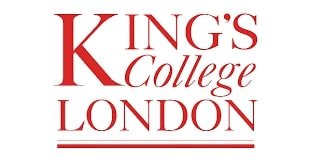
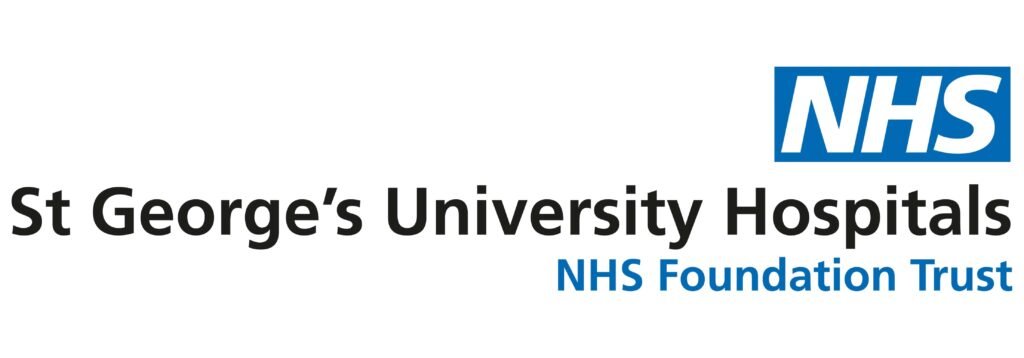
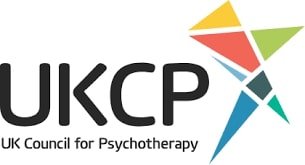
All Rights Reserved.
